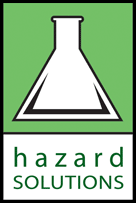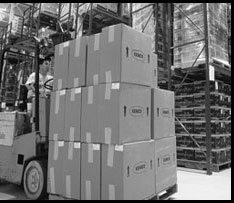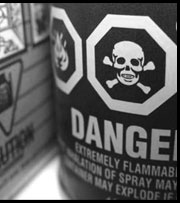DHS Interim Final Rule: Start the Process Now
By: Arthur Mahoney, M.S., CHMM, REA
November 5, 2007
As you may have heard, the Department of Homeland Security (DHS) has released its interim final rule on Chemical Facility Anti-Terrorism Standards. This rule requires facilities which manufacture, use, store or distribute certain chemicals above a specified quantity to complete and submit a Chemical Security Assessment Tool (CSAT) Top-Screen Survey within 60 days of the Federal Register publication (which is expected to occur soon). After the survey is submitted, the DHS will review the information and identify facilities which it considers high risk. The high risk facilities will then be notified and may need to prepare a security vulnerability assessment and site security plan. We can assist you in this process.
Summary of Covered Categories and Screening Threshold Quantities
There are approximately 300 chemicals covered by this standard. Chemicals generally fall into one or more of the following risk categories:
- Release of toxic, flammable or explosive chemicals. Thresholds for chemicals in this category tend to be quite high – 5,000 pounds or greater. There are some exceptions, such as phosgene, at 500 pounds. Facilities in this category may already be covered under EPA’s Risk Management Program.
- Theft/diversion of chemicals which are:
- Chemical weapons/chemical weapon precursors. Certain Chemical Weapon Convention (CWC) toxic chemicals and precursors have a very low threshold of 100 grams, cumulative. Examples include precursors, chlorosarin and methylphosphonyldifluoride. Other CWC toxic chemicals and precursors have thresholds between 2.2 pounds and 220 pounds.
- Chemicals which qualify as a weapon of mass effect. This category includes certain materials which are classified as DOT Division 2.3 (gas poisonous by inhalation), Zone A or Zone B. The thresholds for Zone A and B are 15 pounds and 45 pounds, respectively.
- Chemicals which qualify as an improvised explosive device. This includes certain chemicals that may be used or developed into an explosive material. This category includes nitric acid (concentration of 68% or greater) at 400 pounds and hydrogen peroxide (concentration of 35% or greater) at 400 pounds.
- Sabotage/contamination of chemicals that, if mixed with other readily-available materials, have the potential to create significant adverse consequences. This category includes chemicals that can produce a poisonous gas when mixed with water (DOT Division 4.3 water reactive materials), present in a placardable quantity.
- Mission-critical chemicals. This applies to facilities which account for 20% or more of the domestic production of any one chemical to one or more critical infrastructure sectors.
Do You Need to Complete a CSAT Top-Screen Survey?
If your facility has, or within the last 12 months, had a chemical exceeding a screening threshold quantity, your facility must complete and submit a CSAT Top-Screen Survey. DHS estimates that it will take about 30 hours to complete and is to be submitted for review within 60 days from the rule publication in the Federal Register.
How We Can Assist You
Determine if the Requirement Applies to You
We will review your inventory, which will include importing it
into EH&S Manager, to determine which, if any, of your chemicals
exceed a screening threshold quantity. Our intelligent importing
feature offers you the possibility of having this key step
completed for you at an affordable price.
Complete the CSAT Top-Screen Survey
If you are required to do so, we can complete the CSAT
Top-Screen Survey for you. Based on the information submitted,
DHS will decide if you need to complete a Security Vulnerability
Assessment (SVA) and Site Security Plan (SSP).
Other Services to Consider
- Compliance services: safety program development, permitting and reporting assistance.
- Safety training: general safety, lab safety, facility safety, and hazardous materials shipping by ground and air. Customized in-house training as well as web-hosted solutions.
- Onsite services: flexible EHS staffing by skilled EHS professionals.
- Chemical storage/use planning services: assistance with Fire Code classification and storage for new and existing hazardous materials storage
- Database solutions: chemical inventory, MSDSs, fire code storage compliance, safety inspections.
Served by an Expert in the Field
My credentials include:
- 16 years of experience assisting public and private companies to comply with environmental and safety laws and regulations
- Educator of safety professionals
- MS in chemistry from University of California, Berkeley
- Certified Hazardous Materials Manager (Masters Level)
- Registered Environmental Assessor
Kind Regards
Arthur Mahoney, MS, CHMM, REA
Hazard Solutions LLC
326 Sonora Drive, San Mateo, CA 94402
email: art@hazardsolutions.com
website: http://www.hazardsolutions.com/
Software website: http://www.hazardsolutions.com/software/
--EHS Compliance, Training
and Data Management Solutions—
Disclaimer: The information presented above should not be construed in any way as legal advice or an interpretation of regulations. It is meant to provide basic information about topics that may affect clients and colleagues.



